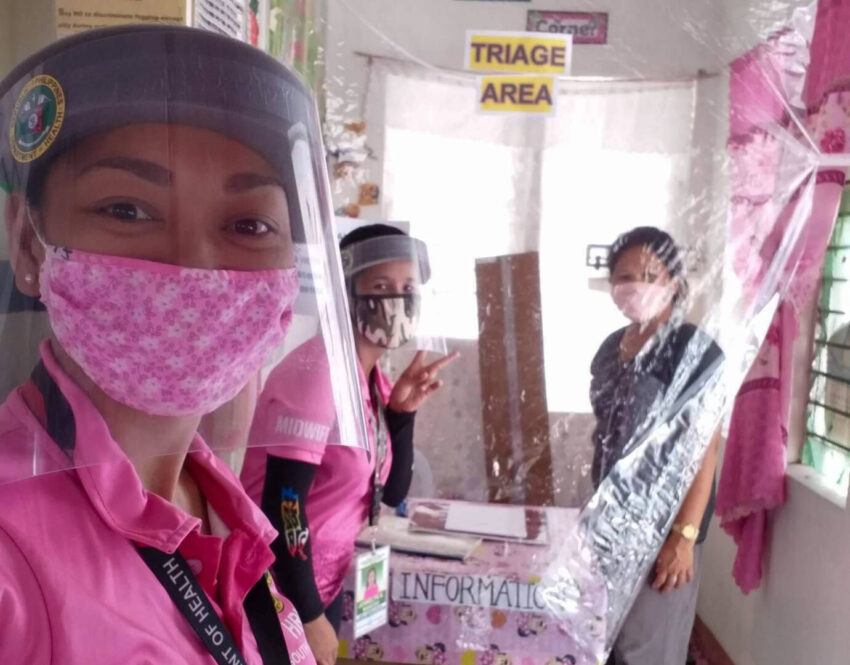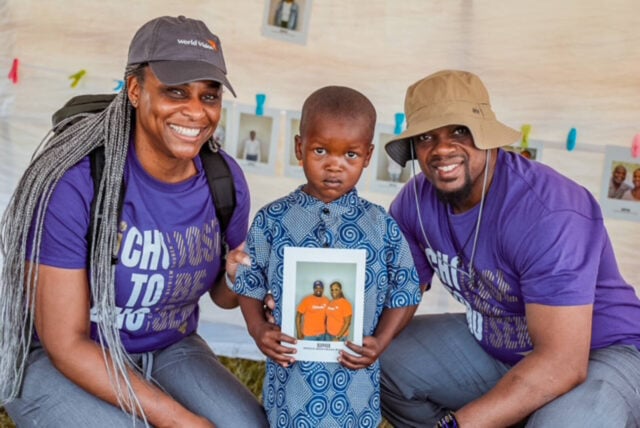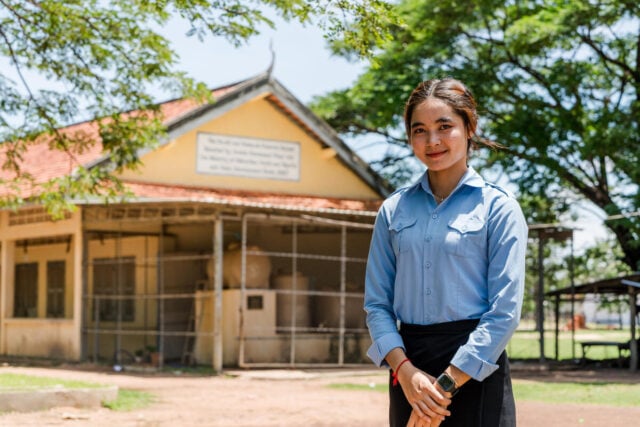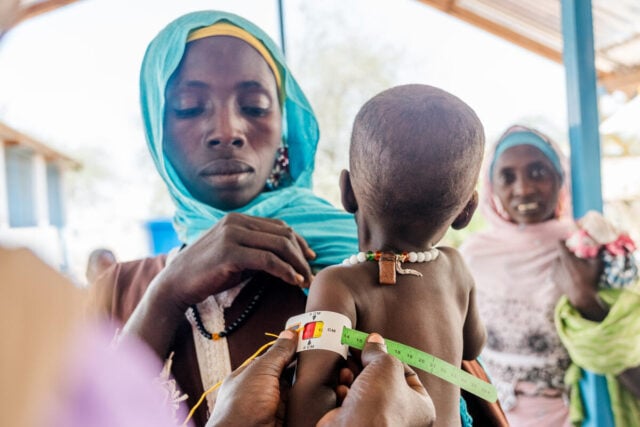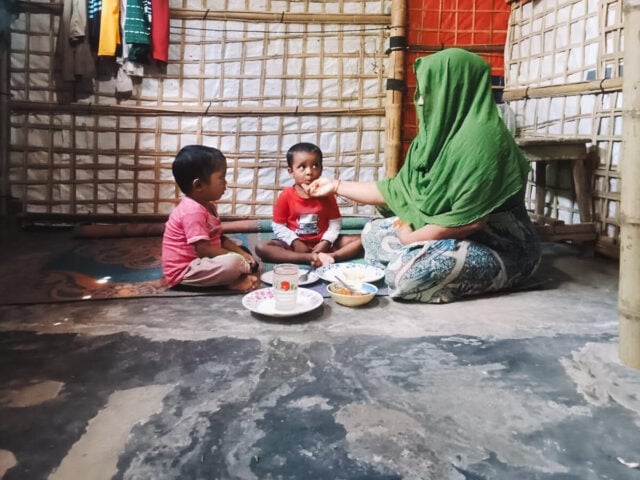When the coronavirus pandemic struck the Philippines in March 2020, former sponsored child Lenny Lyn suited up. As a government health worker, the 27-year-old monitors cases in her community with a check-point crew, scanning temperatures of people crossing a main road in South Cotabato, a province in the southern Philippines.
“I am worried that I have an infant waiting for me at home,” she says. “But I need to take on this task because it is where I am most needed.” Lenny is the youngest of three. Her parents are farmers who didn’t earn a regular income. “I remember our roof,” she says. “My father would put a lot of heavy stones because there weren’t enough roofing nails. During rainy season, we [would] have a standby bucket in the living room because rainwater would leak into our house.”
Keeping Lenny and her siblings in school, especially when they reached college, was a challenge for her parents. “All I wanted then was for our life to get better and for me and my siblings to finish school so we can help our parents,” she says.
It was a blessing for the family when World Vision supported Lenny’s education. “World Vision was willing to support me, but the organization could not shoulder everything,” she says. “The university, meanwhile, said that I could take a laddered program, starting off with midwifery, nursing then medicine — all costs to be shouldered by the school. I grabbed that opportunity.”
Through it all, Lenny knew she was not alone. “Thank you to my sponsor, Barbara, for supporting my education. It was the push that I needed to have a big dream and work hard for it,” she says. “I always looked forward to [her] letters,” she says. “In my letters to her, I would tell her how I did in school. Her answers were always encouraging.”
Their correspondence continued through college. “Barbara never failed to write me letters and encouraged me to keep dreaming,” she says.
Those dreams changed when tragedy struck Lenny’s family. “I started really dreaming of becoming a doctor in 2011, when, on my first year in the midwifery program, a cousin — who was like an older sister to me — died with her unborn baby,” she says. “Since then, I wanted to learn more about the field of OB-GYN to prevent deaths like that of my cousin.”
Before the pandemic, Lenny worked as a World Vision volunteer community health worker assigned to far-flung areas where access to medical services is a challenge. She provided prenatal care, infant care such as immunizations, and check-ups for adults, traversing hours of rough roads to reach her assigned area and bring health services to the mostly Indigenous people.
With COVID-19, God called Lenny into a new kind of service. “At first, I was really afraid,” she says, “… There is still fear, especially because next month, I will be assigned the municipal isolation unit. I will be on duty for seven straight days and will be on quarantine for14 days. I will be away from my child for a longer period of time.”
Faith sustains her. “I’ve seen God provide for my needs, especially when we did not have much. There were times when I also felt like He left me, especially when I failed my first nursing board exam. I was frustrated, but it was also during that experience that He impressed on me that He will finish the good works that He began in me. … I trust that His protection upon me and my family, since I was a child, is still the same protection that He is giving me now.’
And, of course, there’s Barbara. “I consider Ms. Barbara as my encourager and my second mother,” she says. “She helped provide for my needs when my parents could barely give them to me.” The risks may be great, but Lenny knows she’s not alone.
Joy Maluyo of World Vision’s staff contributed to this story.
